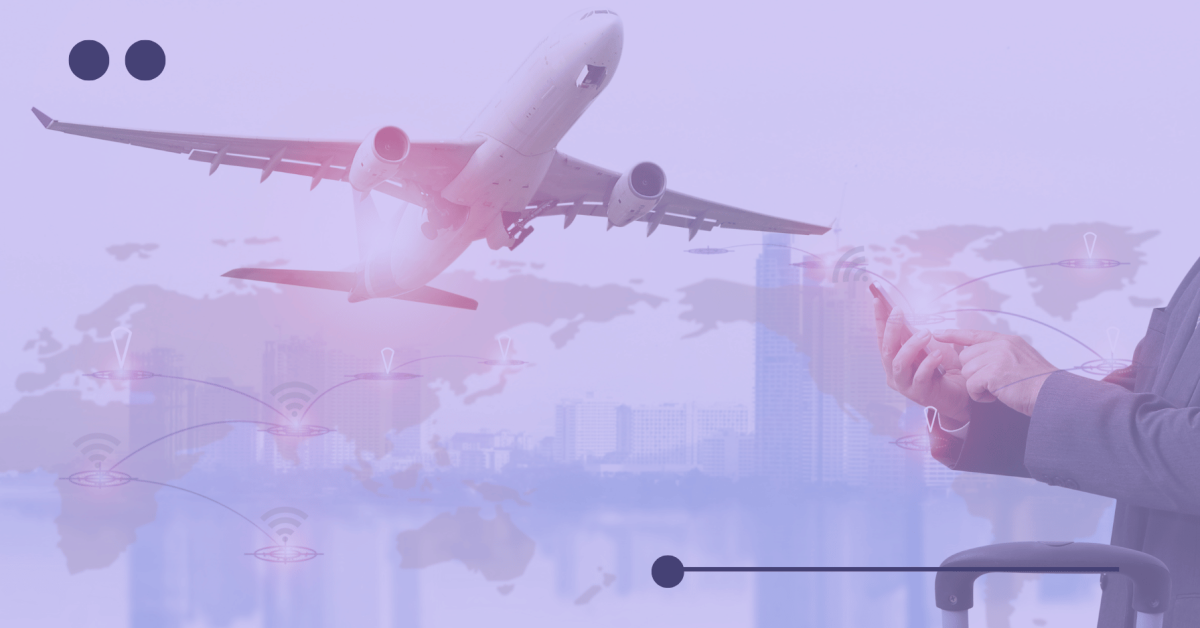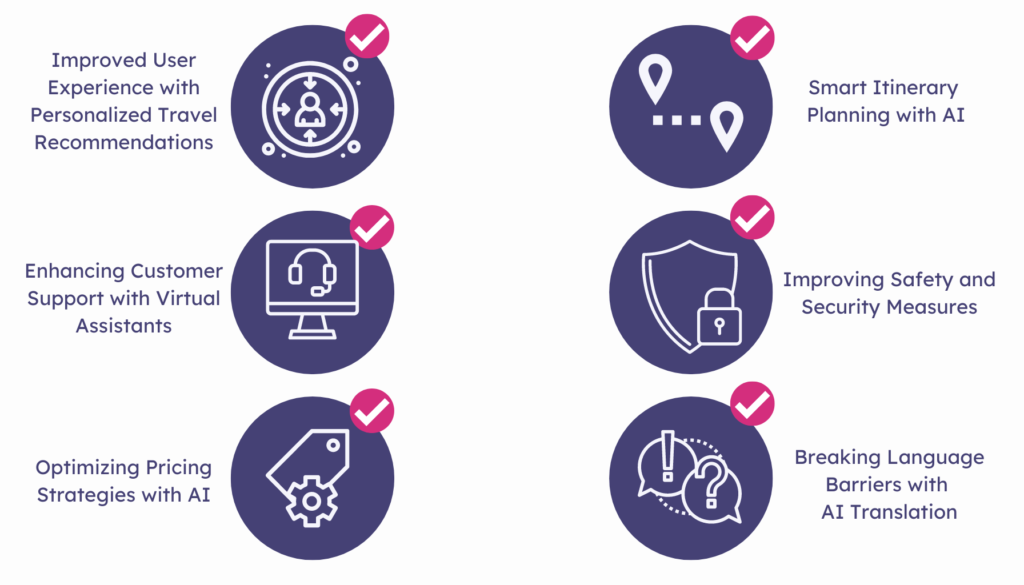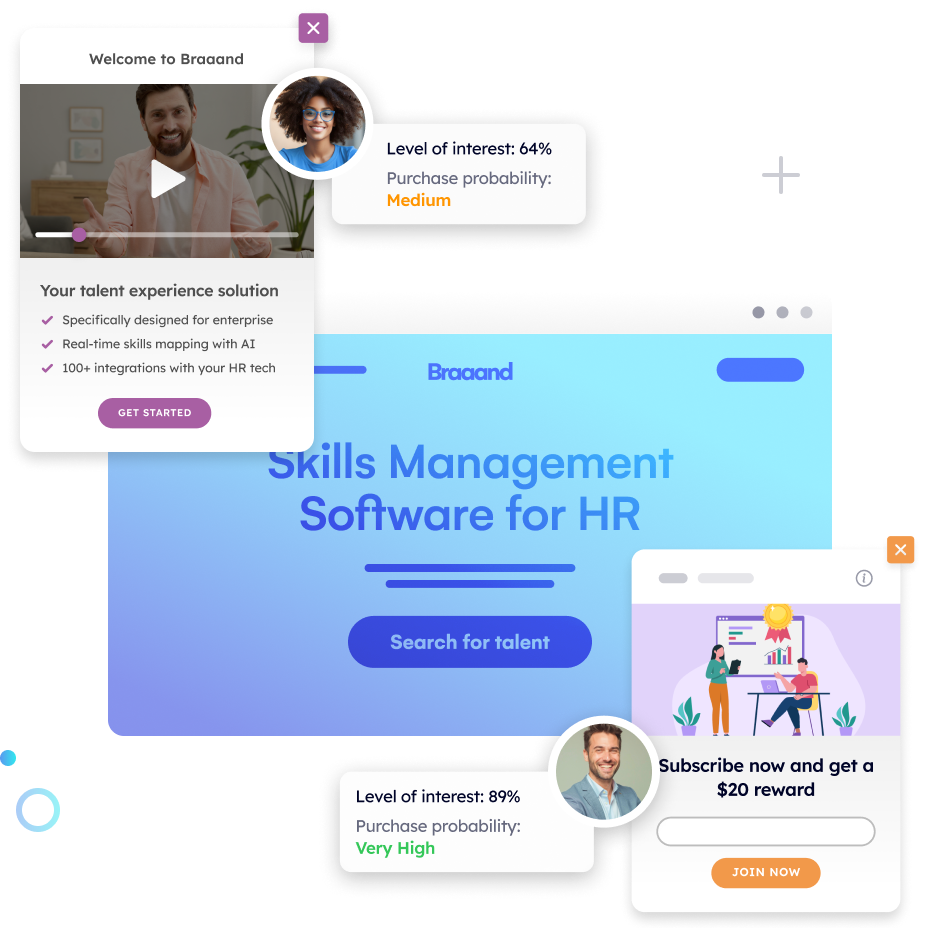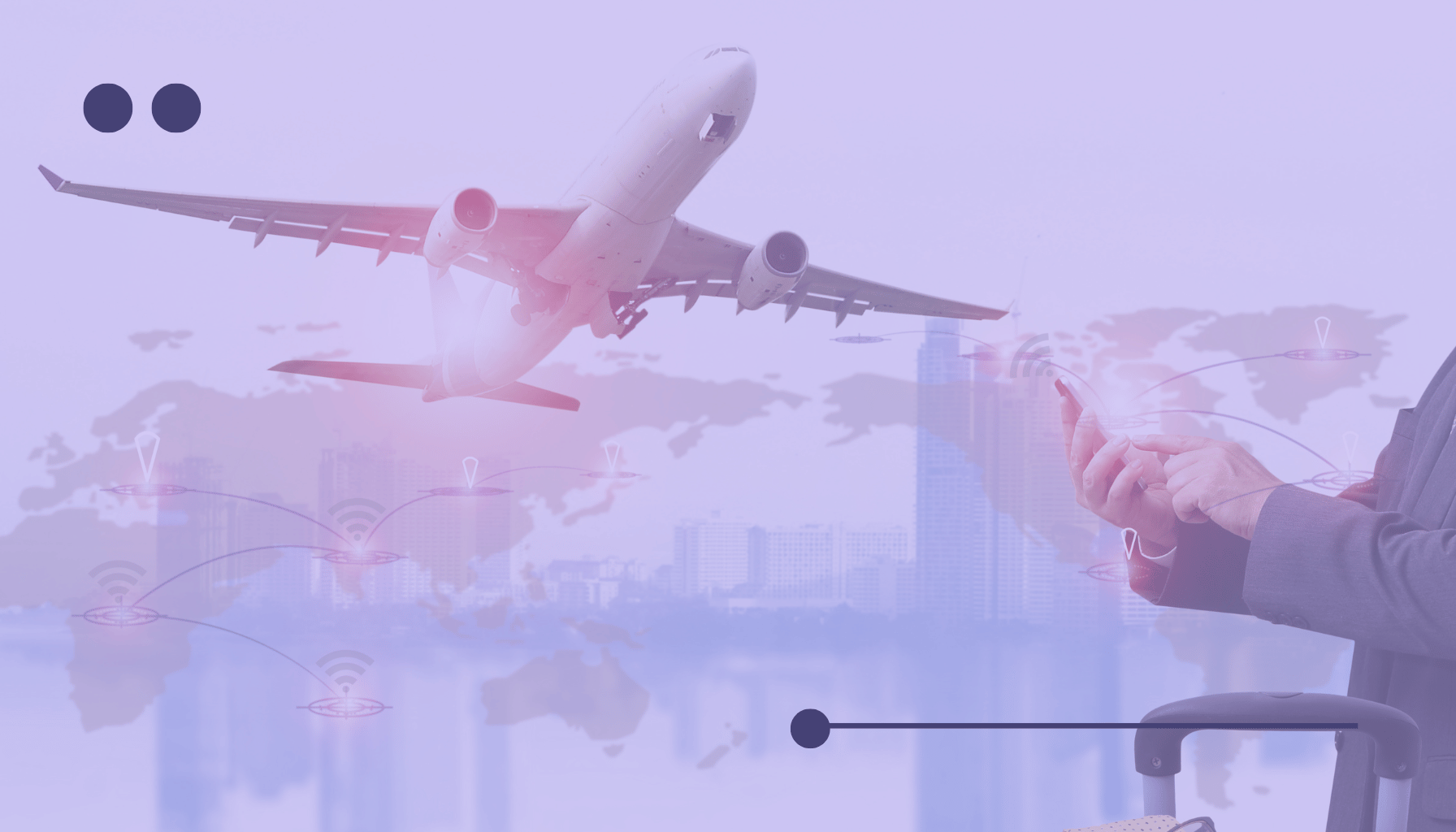
The travel industry is experiencing a profound transformation, thanks to the rapid advancement of Artificial Intelligence (AI) technology. From personalized recommendations and virtual assistants to dynamic pricing and smart itinerary planning, AI is reshaping the way we explore the world.
We’ll explore the incredible ways AI is revolutionizing the travel industry, enhancing customer experiences, and streamlining operations for travel companies.
Improved User Experience with Personalized Travel Recommendations
In the era of AI, the travel industry is witnessing a revolutionary shift toward personalized travel recommendations. At the heart of personalized recommendations lies the ability of AI algorithms to analyze and understand user preferences and behavior. These algorithms are designed to sift through vast amounts of data, including previous travel history, browsing patterns, social media interactions, and more.
The analysis of user preferences involves identifying recurring themes, uncovering hidden correlations, and discerning individual travel inclinations. For instance, AI algorithms may identify a traveler’s affinity for adventurous activities, a preference for luxury accommodations, or a fondness for cultural experiences. By delving into these preferences, AI algorithms gain a deep understanding of what makes each traveler tick.
Using the power of AI, travel companies leverage various techniques to provide personalized recommendations. Collaborative filtering, one popular approach, compares an individual’s preferences to those of other like-minded travelers, identifying patterns and suggesting destinations and activities that align with their interests. By considering the choices and experiences of similar travelers, AI can unveil hidden gems and unexplored destinations that are likely to resonate with each individual.
Another approach to personalized recommendations is content-based filtering, which focuses on analyzing the characteristics and features of travel options themselves. For example, AI algorithms may take into account factors such as location, amenities, and user reviews to suggest accommodations that closely match a traveler’s preferences.
Enhancing Customer Support with Virtual Assistants
In the digital age, customer support has taken a significant leap forward with the introduction of AI-powered virtual assistants. These intelligent systems provide instant support to travelers, ensuring quick and efficient resolution of their queries and concerns, regardless of the time or location.
Powered by AI and natural language processing (NLP) techniques, AI-powered assistants are capable of understanding and responding to customer inquiries in a human-like manner. Through a combination of pre-defined responses and real-time learning, virtual assistants can provide quick and accurate answers to a wide range of travel-related questions.
These intelligent companions are designed to understand and anticipate individual traveler preferences, providing customized support and recommendations at every stage of the travel experience. By combining this data with real-time contextual information, such as current location, weather conditions, and local events, virtual assistants can offer tailored suggestions and assistance that enhance the overall customer experience.
For example, a virtual assistant can proactively provide personalized recommendations for nearby attractions, restaurants, or activities based on a traveler’s interests and location. They can also assist with booking arrangements, flight updates, and even handle changes or cancellations, ensuring a seamless and hassle-free experience.
Optimizing Pricing Strategies with AI
In the highly competitive travel industry, pricing optimization has become a crucial factor in gaining a competitive edge. AI plays a pivotal role in this domain by enabling travel companies to implement dynamic pricing strategies. Dynamic pricing leverages AI algorithms and data-driven insights to adjust prices in real time, ensuring that pricing decisions align with market conditions and customer demand.
AI algorithms analyze a plethora of data sources to drive data-driven pricing decisions. By examining factors such as supply and demand dynamics, historical booking patterns, competitor pricing, and even external events, AI can uncover valuable insights and patterns. These insights inform the pricing strategies, helping travel companies to optimize revenue by capitalizing on peak demand periods, filling inventory during low-demand periods, and responding swiftly to market fluctuations.
Another significant benefit of dynamic pricing enabled by AI is the ability to offer personalized and real-time pricing options to travelers. AI algorithms take into account various factors such as customer preferences, booking history, and segmentation data to deliver tailored pricing options.
For instance, a traveler who frequently books luxury accommodations may be presented with exclusive pricing offers for high-end hotels, while a budget-conscious traveler may receive discounted rates for more affordable options.
Real-time pricing updates further enhance the value proposition. As market conditions and demand change, AI algorithms can adjust prices in real time, ensuring that travelers have access to the most up-to-date and competitive pricing options.

Smart Itinerary Planning with AI
Planning a travel itinerary can often be a daunting and time-consuming task. However, with the power of AI, the process has become effortless and efficient. AI algorithms are revolutionizing itinerary planning by considering various factors and seamlessly integrating activities and transportation, resulting in optimized and personalized travel plans.
AI algorithms analyze travel time to determine the most efficient routes and connections between destinations. By considering factors such as distance, transportation options, and historical travel data, AI can suggest itineraries that minimize travel time and maximize the time spent at each destination.
These algorithms take into account real-time traffic conditions. By incorporating data from various sources, such as GPS data and traffic updates, AI can dynamically adjust travel plans to avoid congestion and optimize travel routes. This ensures that travelers can navigate efficiently and reach their destinations in a timely manner.
Weather forecasts also play a crucial role in itinerary planning. AI algorithms consider weather data to recommend activities and destinations that are suitable for prevailing weather conditions. For example, if it’s raining in one location, AI may suggest indoor attractions or alternative activities in nearby areas to ensure an enjoyable and seamless travel experience.
AI algorithms factor in user preferences when creating travel itineraries. By analyzing past travel history, user feedback, and stated preferences, AI can curate personalized recommendations and tailor itineraries to match individual interests. Whether a traveler prefers cultural experiences, outdoor adventures, or culinary delights, AI can incorporate these preferences into the itinerary, making the travel experience more personalized and fulfilling.
Another key benefit of AI-driven itinerary planning is the seamless integration of activities and transportation. AI algorithms analyze travel times, opening hours, and various constraints to coordinate activities and optimize the use of time and resources.
For example, AI can suggest activities that are conveniently located in close proximity to each other, minimizing travel time between attractions. It can also consider the operating hours of attractions and arrange them in a logical sequence, ensuring that travelers can visit each place within the available timeframe.
Improving Safety and Security Measures
Safety and security are paramount in the travel industry, and AI technologies are playing a vital role in reinforcing and enhancing these measures. Through the application of AI, travel companies and authorities are able to strengthen security protocols, minimize risks, and ensure a safe environment for travelers.
Facial Recognition and Biometrics
AI technologies, such as facial recognition and biometrics, are transforming security measures at airports, hotels, and other travel facilities. Facial recognition systems utilize AI algorithms to identify and verify individuals based on their unique facial features. Biometric data, such as fingerprints or iris scans, can also be used for identification purposes.
At airports, AI-powered facial recognition systems streamline the security process by enabling automated and contactless identity verification. Travelers can pass through security checkpoints and immigration processes with greater ease and efficiency, while authorities can accurately identify potential threats or persons of interest.
In hotels, AI-powered security systems can utilize facial recognition to enhance guest safety. By monitoring and identifying individuals entering restricted areas or recognizing suspicious behavior, these systems can promptly alert security personnel to take necessary actions, minimizing security risks.
Predictive Analytics for Enhanced Risk Management
AI also plays a crucial role in enhancing risk management through predictive analytics. By analyzing vast amounts of data, including historical and real-time information, AI algorithms can identify patterns, detect anomalies, and predict potential risks.
For instance, AI algorithms can analyze data from various sources, such as travel patterns, weather conditions, social media, and public events, to assess potential risks or disruptions. This information can be used to enhance safety protocols and emergency response strategies. By detecting early warning signs, AI-powered systems can alert authorities, allowing them to proactively mitigate risks and ensure the safety of travelers and staff.
Additionally, AI can improve security measures through behavioral analytics. By monitoring and analyzing individual behaviors, AI algorithms can identify deviations from normal patterns that may indicate suspicious activities. This enables security personnel to take appropriate actions and prevent potential threats.
Breaking Language Barriers with AI Translation
Language barriers can often hinder communication and limit the travel experience for individuals visiting foreign destinations. However, with the advancements in AI translation technology, these barriers are being broken down, enabling seamless communication between travelers and locals who speak different languages.
AI-powered real-time language translation apps and devices have emerged as powerful tools for overcoming language barriers. These tools leverage AI algorithms and natural language processing (NLP) techniques to accurately translate spoken or written language in real-time.
Travelers can simply speak or type their messages into these apps or devices, and the AI algorithms quickly translate the content into the desired language. The translated text or speech is then presented to the recipient, allowing for smooth and effective communication between individuals who do not share a common language.
These real-time translation tools have become increasingly sophisticated, offering accurate translations with improved language nuances and contextual understanding. This increased accessibility also opens up new opportunities for travelers to explore different destinations, connect with people from diverse backgrounds, and create memorable experiences.
Conclusion
AI is revolutionizing the travel industry in numerous ways. From improved user experiences with personalized travel recommendations to enhanced customer support through chatbots and virtual assistants, AI is reshaping the way travelers plan, book, and experience their journeys. AI-powered dynamic pricing strategies optimize revenue and offer tailored pricing options, while smart itinerary planning streamlines travel arrangements and maximizes efficiency. Additionally, AI strengthens safety and security measures, breaks down language barriers with translation tools, and promotes cultural exchange. As AI continues to advance, it holds immense potential to transform the travel industry further, creating more personalized, accessible, and seamless experiences for travelers worldwide.
Increase +180% conversions from your website with AI
Get more conversions from your existing traffic by delivering personalized experiences in real time.
- Adapt your website to each visitor’s intent automatically
- Increase conversions without redesigns or dev work
- Turn anonymous traffic into revenue at scale


